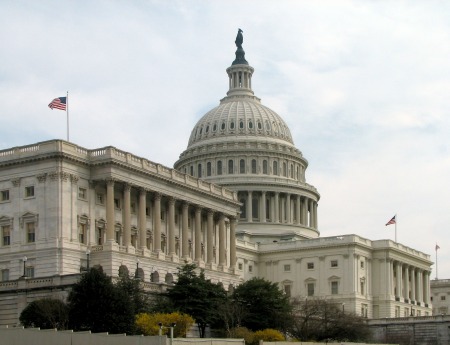House Dems: FCC is Rushing Net Neutrality Order in Advance of Election
Pallone, Doyle said it is 'business before consumers' as usual

The smarter way to stay on top of the multichannel video marketplace. Sign up below.
You are now subscribed
Your newsletter sign-up was successful
House Democrats are accusing the FCC of rushing a decision on an order responding to some issues a federal court had with the commission's elimination of net neutrality rules.
The legislators suggest FCC chair Ajit Pai is trying to get the decision out the door before an election that could well dethrone the FCC's current Republican majority.
Related: Eshoo Calls on FCC to Pull Remand Order
The commission is preparing to vote Tuesday (Oct. 27) on its answer to a remand by the U.S. Court of Appeals for the D.C. Circuit. The order is expected to be approved in a party line vote by that Republican majority.
Related: GOF FCC KO's Title II
“Chairman Pai is at it again, pushing his anti-consumer agenda – this time on the eve of an historic election. Americans deserve strong Net Neutrality protections, but this FCC is rushing ahead of November 3rd to further cement its efforts to deprive Americans of these critical protections," said Energy and Commerce chair Frank Pallone, Jr. (D-N.J.) and Communications Subcommittee chair Mike Doyle (D-Pa.). "At a time when internet connectivity is especially critical for students, parents, first responders, [and] low-income and rural Americans, the FCC should be protecting American families, not undermining them. Time and again, this FCC has put industry interests before those of consumers, and its actions this week are no exception.”
The court upheld the bulk of the agency's decision to reclassify ISPs as Title I information service providers that aren’t subject to Title II common-carrier regulations, and to eliminate the rules against blocking, throttling, paid prioritization, as well as a general conduct rule. The court said the FCC was within its authority to take those actions and that the decision was not arbitrary and capricious, but it said the FCC had not sufficiently explained the impact of that deregulation on public safety, the regulation of pole attachments and its Lifeline broadband/phone subsidy program.
The smarter way to stay on top of the multichannel video marketplace. Sign up below.
Related: INCOMPAS Says Public Safety Is at Risk from Deregulated ISPs
The FCC's response was essentially that 1) it followed naturally from the RIF order that public safety would be promoted (it added the caveat that "even if there were some adverse impacts on public safety applications in particular cases—which we do not anticipate—the overwhelming benefits of Title I classification would still outweigh any potential harms"); 2) that the benefits of light-touch regulation under an information service definition of broadband access--rather than the telecommunications service definition of the previous FCC--outweighs any potential negative effects of losing the pole attachments rights under that telecom service definition; and 3) that it has legal authority to continue to provide Lifeline subsidies under the reclassification.
In all three cases, the FCC argues in the remand order that there is no basis to alter its conclusions in the RIF order. Those were that it needed to reverse the previous, Democratic-led, FCC's "misguided and short-lived utility-style regulation of the Internet and return to the light-touch regulatory framework for broadband Internet access service that facilitated rapid and unprecedented growth for almost two decades.
Contributing editor John Eggerton has been an editor and/or writer on media regulation, legislation and policy for over four decades, including covering the FCC, FTC, Congress, the major media trade associations, and the federal courts. In addition to Multichannel News and Broadcasting + Cable, his work has appeared in Radio World, TV Technology, TV Fax, This Week in Consumer Electronics, Variety and the Encyclopedia Britannica.

